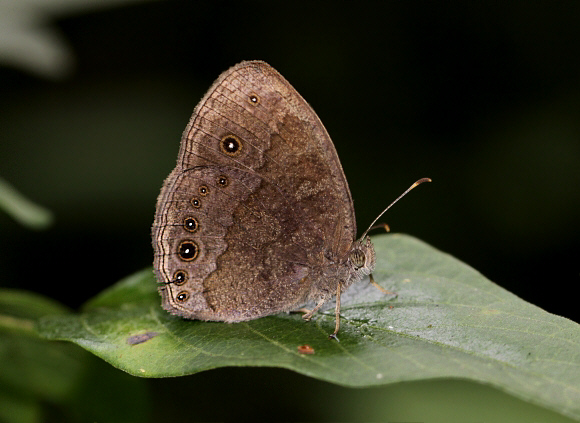
Introduction
Bicyclus is the most numerous of the Satyrine genera in Africa, comprising of about 85 species, 50 of which occur in West Africa. The butterflies are collectively known as Bush Browns, and can be thought of as the sister genus to the Asian Mycalesis.
Bicyclus are characterised by having a regular series of submarginal ocelli on the hindwings, and a pair of ocelli on the forewings, of which the lower ocellus is always the largest. In most species the ocelli are very prominent, but in a few species such as sweadneri they are vestigial, especially in the dry season morph. Most species have very rounded wings, but again there are a few exceptions such as zinebi which has a squarish apex on its forewings, and sambulos which has a stumpy “tail” on the hindwings.
Bicyclus vulgaris is found from Senegal to Ethiopia, and south to western Kenya and Tanzania.
Habitats
This species is found in savannah / forest mosaics, riverine thickets, open disturbed woodland and scrubby farmland.
Lifecycle
The larval foodplants are grasses, of which many species are probably used.
Adult behaviour
The butterflies are active in full sunshine but can often be found at rest on bushes or low herbage in overcast weather.
